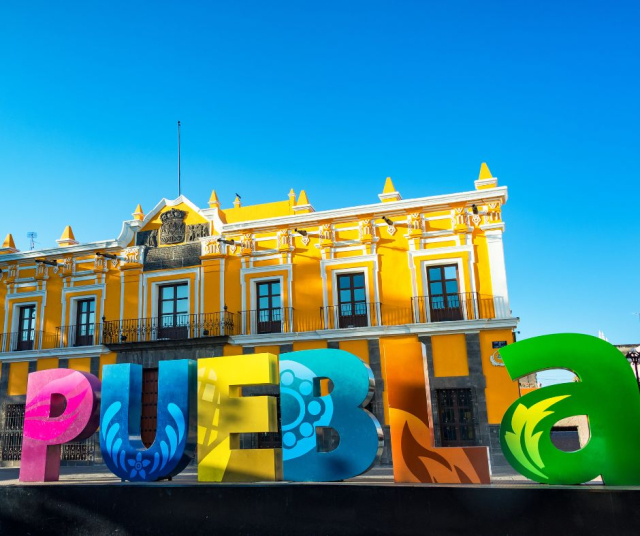The Battle of Puebla, fought on May 5, 1862, is one of the most emblematic events in the history of Mexico. It represents a significant victory for the Mexican army over the invading French forces, considered one of the best in the world at the time. This victory not only had a military impact, but also strengthened the national spirit and became a symbol of resistance and pride for Mexicans.
In the mid-19th century, Mexico was going through a period of intense political and economic instability. The Reform War (1858-1860) between liberals and conservatives had left the country deeply in debt. In 1861, President Benito Juárez suspended foreign debt payments for two years, drawing the ire of European powers, particularly France, Spain, and Great Britain, who sent forces to demand compliance with payments.
While Spain and Britain eventually withdrew after negotiations, France, under Napoleon III, saw an opportunity to establish an empire in Latin America and expand its influence. Thus, in December 1861, French troops landed in the port of Veracruz, beginning the French intervention in Mexico.
Preparations for Battle
The French forces, commanded by General Charles Ferdinand Latrille, Count of Lorencez, advanced towards the interior of the country, confident in their military superiority. The French army, composed of nearly 6,000 well-equipped and trained soldiers, had the experience and prestige of being one of the most formidable of the time.
On the other hand, the Mexican army, led by General Ignacio Zaragoza, was made up of around 4,000 men, many of them militiamen and peasants without the same training or resources as the French. Zaragoza, however, was determined to defend the national territory and chose the city of Puebla as the strategic point to confront the enemy, due to its geographical location and natural fortifications.
The battle
On May 5, 1862, French troops encountered fierce Mexican resistance in the vicinity of the forts of Loreto and Guadalupe, located on hills overlooking the city of Puebla. The French, confident of a quick victory, launched repeated frontal attacks, underestimating the defensive capabilities of the Mexicans.
The Mexican forces, although outnumbered and outequipped, made effective use of the terrain and showed great bravery and determination. The forts of Loreto and Guadalupe, defended by the troops of Zaragoza, became impassable bastions. After several hours of intense fighting, the French troops were forced to withdraw, leaving many dead and wounded on the battlefield.
Consequences and Meaning
The victory in the Battle of Puebla had a profound impact on the spirit of the Mexican people. He demonstrated that, despite adversity and material inferiority, it was possible to resist and defeat one of the most powerful armies in the world. This triumph became a symbol of the tenacity and courage of the Mexican nation.
Although the war continued and French troops eventually occupied Mexico City, installing Maximilian of Habsburg as emperor, Mexican resistance was never extinguished. Finally, in 1867, republican forces led by Benito Juárez managed to overthrow the empire and reestablish the republic.
The Cinco de Mayo Celebration
Over time, the Battle of Puebla acquired a cultural and symbolic meaning that transcends its military importance. Every year on May 5, Mexico celebrates this victory with parades, speeches and civic events that remember the bravery and sacrifice of those who defended national sovereignty.
Curiously, the commemoration of Cinco de Mayo has acquired a special relevance in the United States, where Mexican-American communities celebrate it with fervor. This holiday has evolved to become a celebration of Mexican culture and Latin heritage in general, with events that include music, dance, gastronomy and popular traditions.
The Legacy of the Battle of Puebla
The Battle of Puebla is not only remembered as a heroic episode in Mexican history, but has also left a lasting legacy in national identity. This event highlights the importance of unity and resistance in the face of adversity, values that continue to resonate in contemporary Mexican society.
Strategic Analysis of the Battle
The strategy used by General Ignacio Zaragoza in the Battle of Puebla has been the object of study and admiration by historians and military strategists. Zaragoza knew how to take advantage of the terrain and the defensive position of the forts of Loreto and Guadalupe, creating an environment in which the French forces, despite their numerical and technological superiority, found themselves in a disadvantageous position.
The use of ambushes, defense in depth, and effective mobilization of limited troops and resources were key factors in the Mexican victory. Furthermore, Zaragoza managed to inspire his men, many of whom were volunteers with no formal military training, instilling in them a sense of purpose and determination that was crucial in the outcome of the battle.
Impact on the French Intervention
The defeat at Puebla was a significant blow to the French forces and their reputation. Although they continued their campaign and managed to occupy Mexico City, the fierce resistance they encountered in Puebla demonstrated that the conquest of Mexico would not be as easy as they had anticipated. The Mexican victory encouraged other regions of the country to resist and united the nation around the cause of defending sovereignty.
Key Figures of the Battle
In addition to General Ignacio Zaragoza, several figures stood out for their role in the Battle of Puebla. Among them are generals Porfirio Díaz and Felipe Berriozábal, who played crucial roles in the defense of the forts. It is also important to mention the soldiers and civilians who, without having military experience, enlisted to defend their country, showing extraordinary patriotism and courage.
Today, as we commemorate this date, we remember not only the events of that day, but also the values and principles they represent: unity, courage and love for the country. These values continue to be fundamental for modern Mexico and are a source of inspiration to face the challenges of the present and the future.
